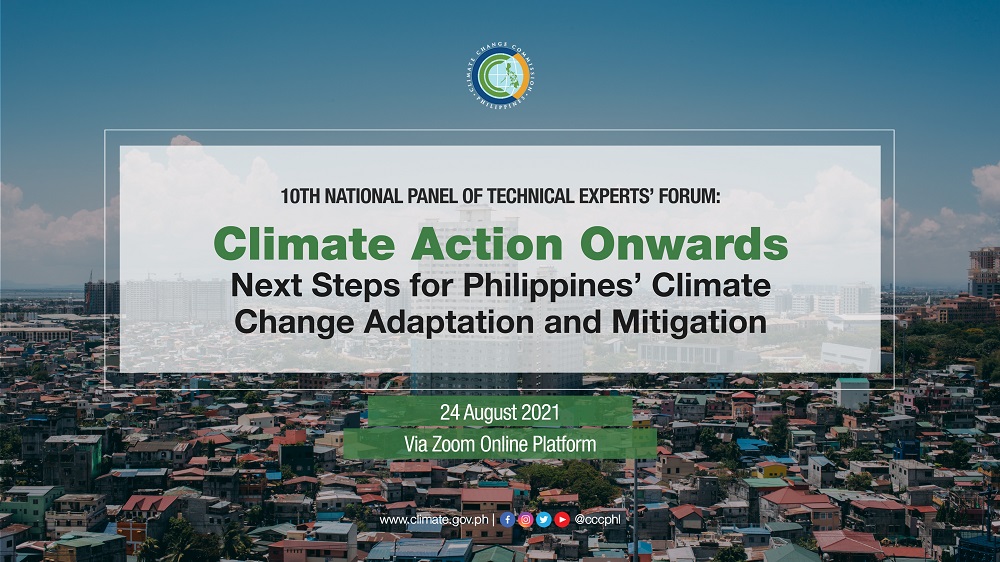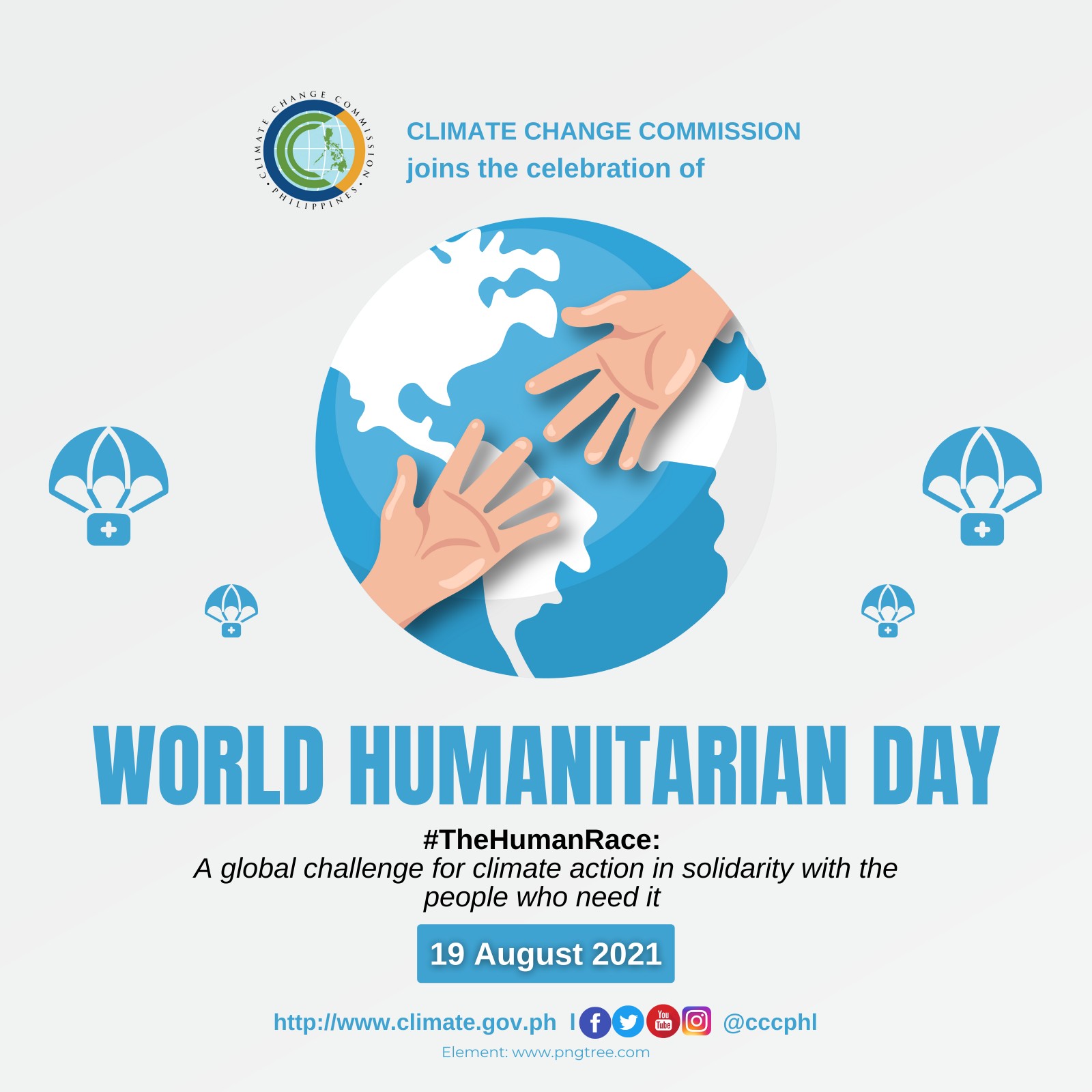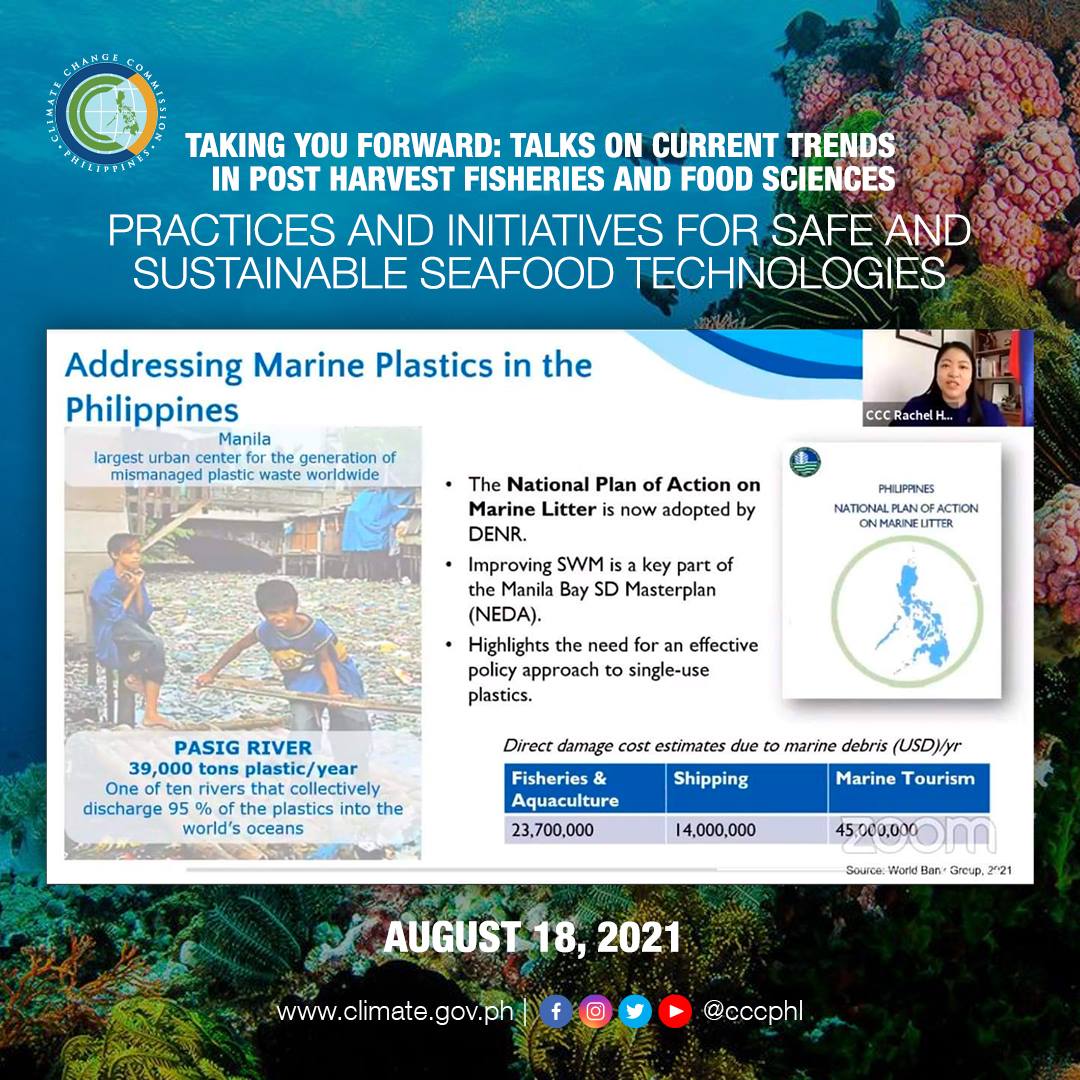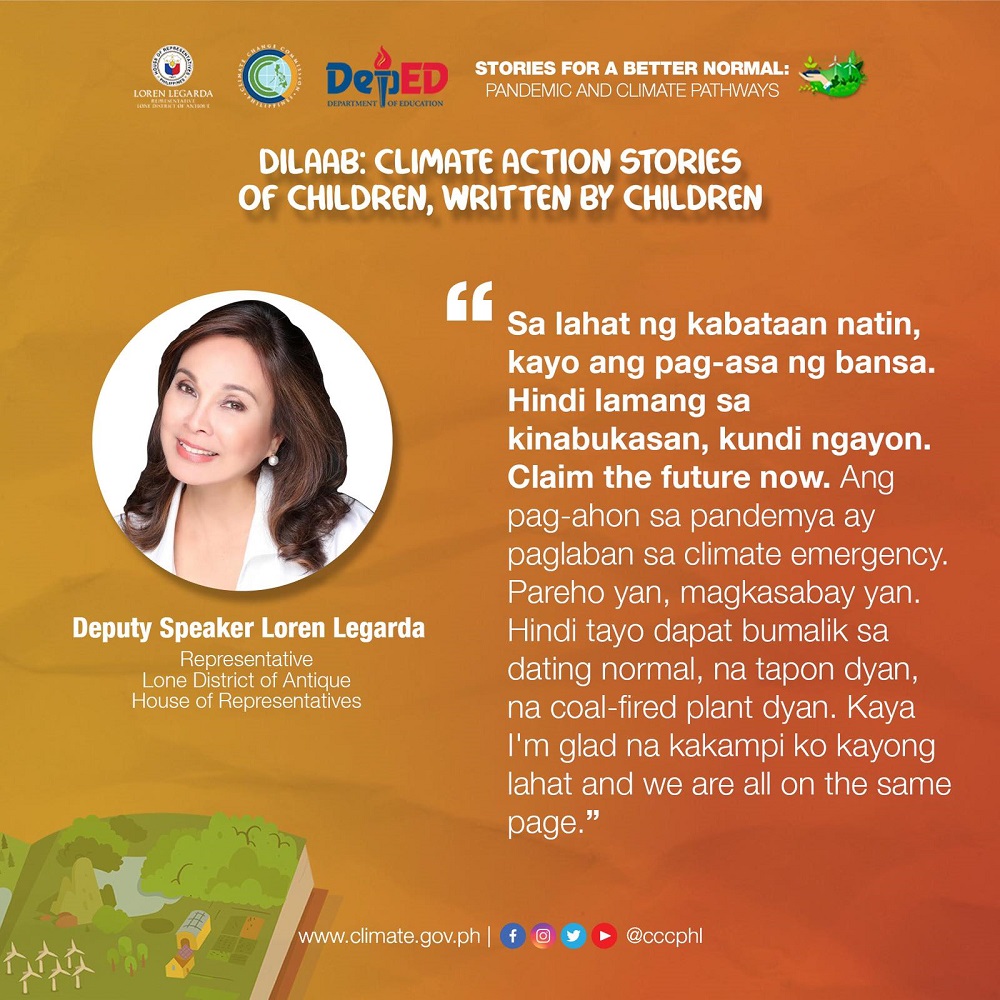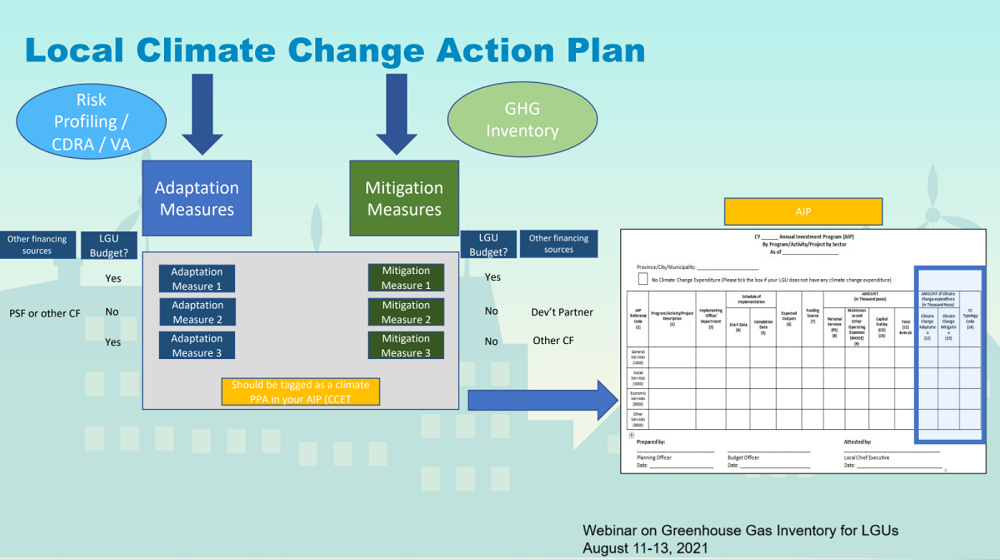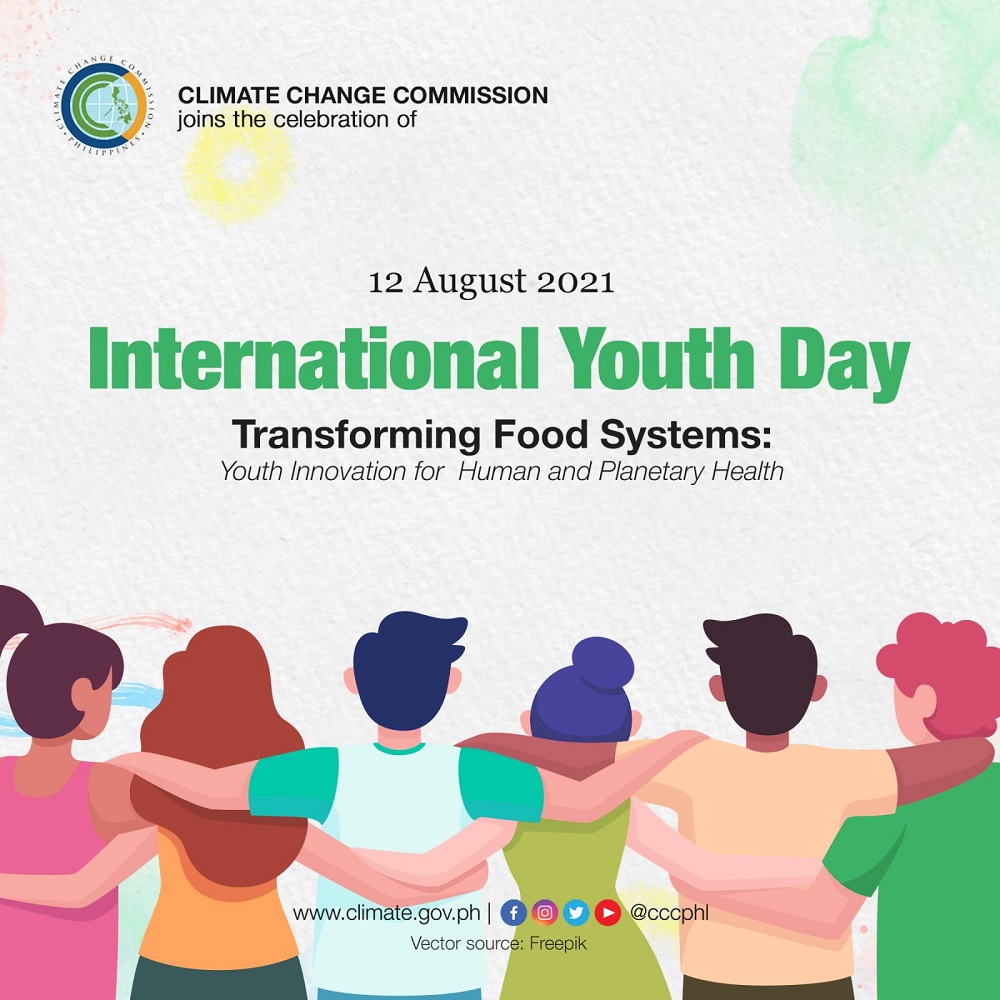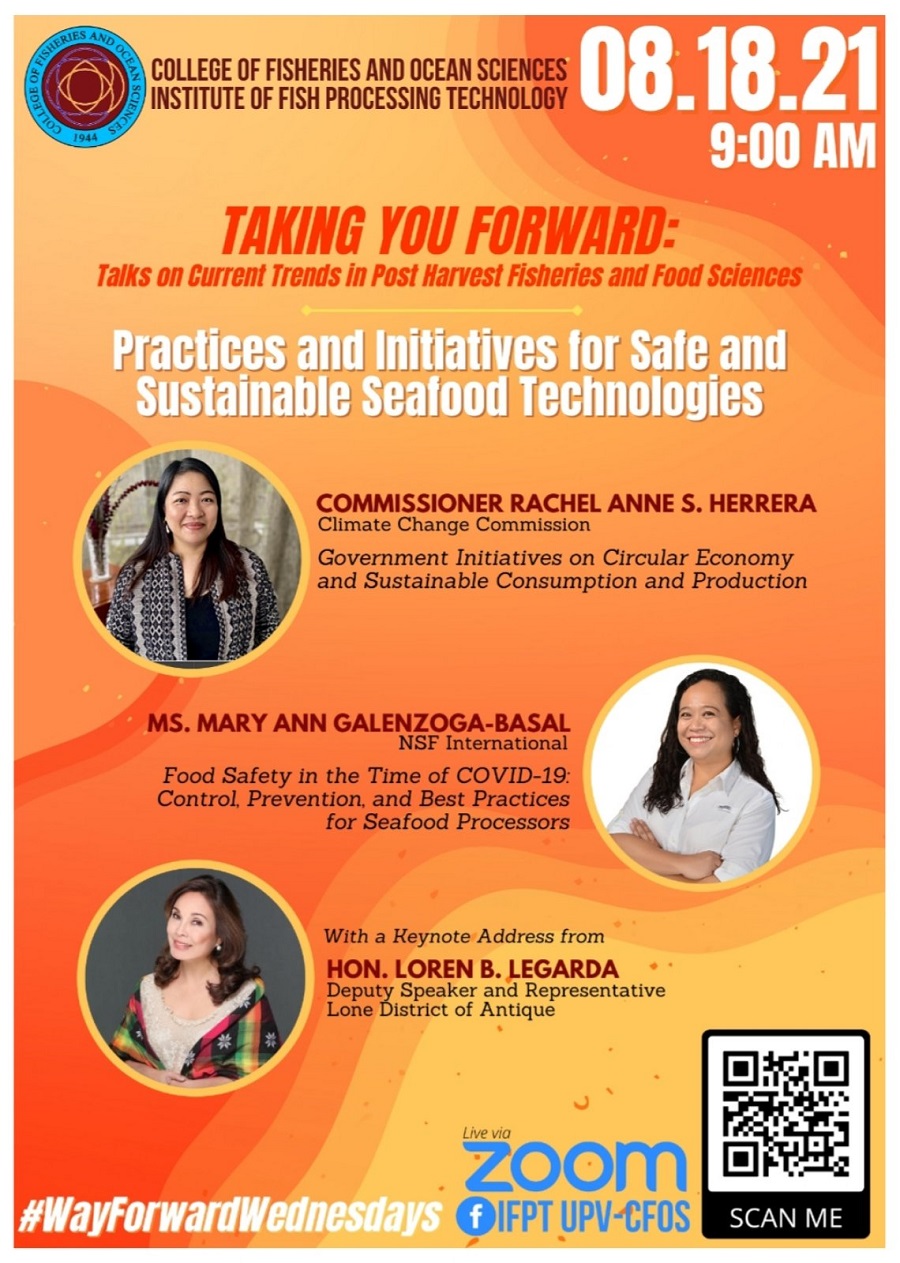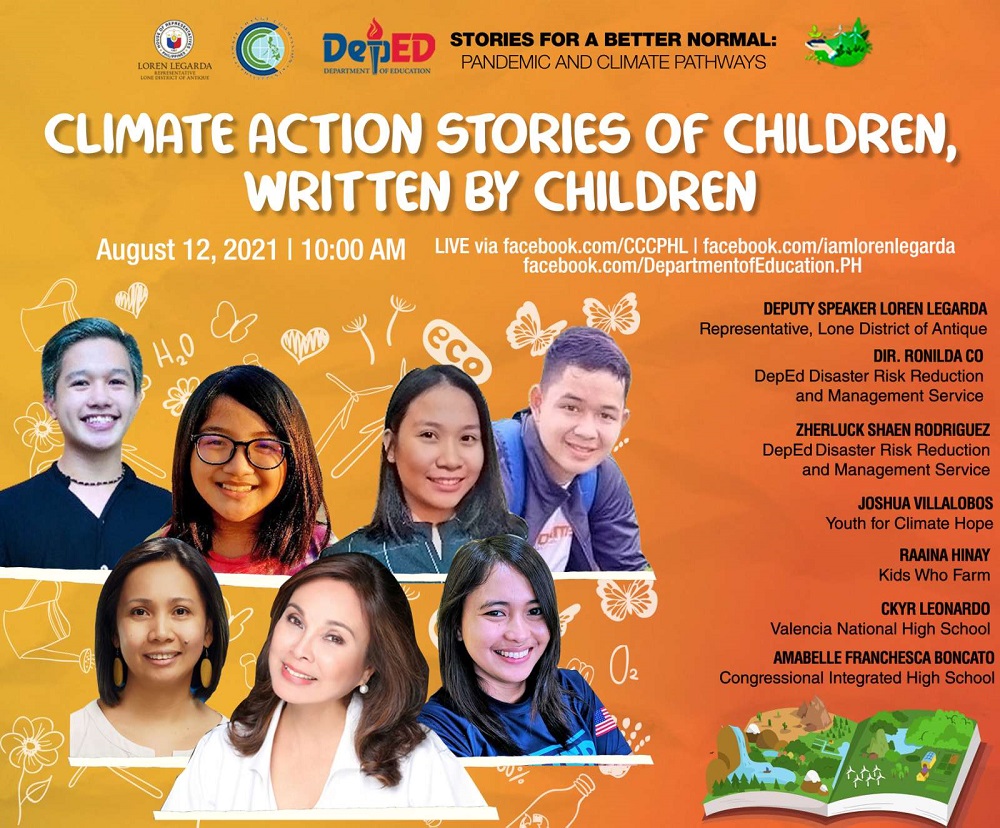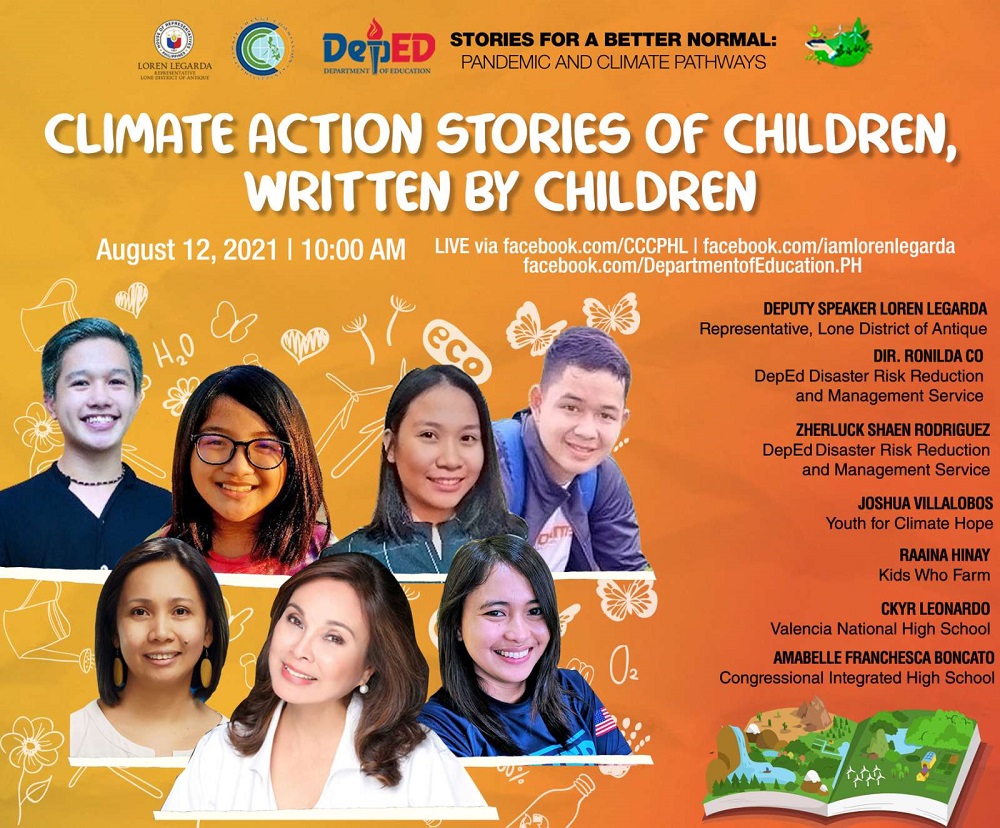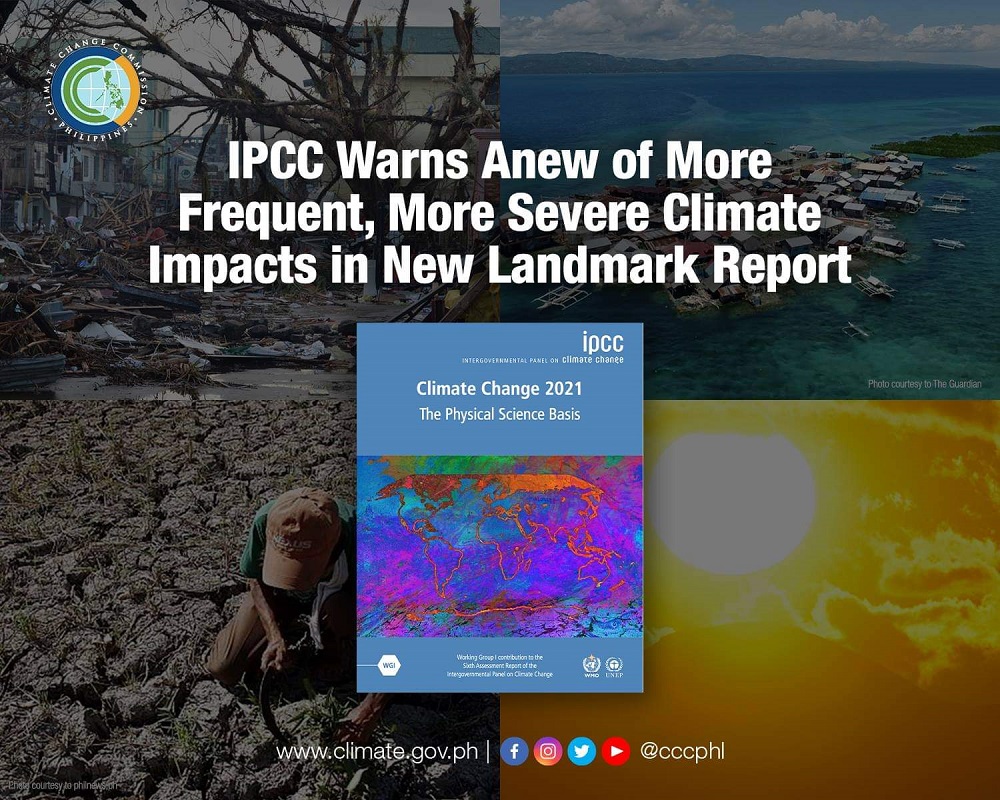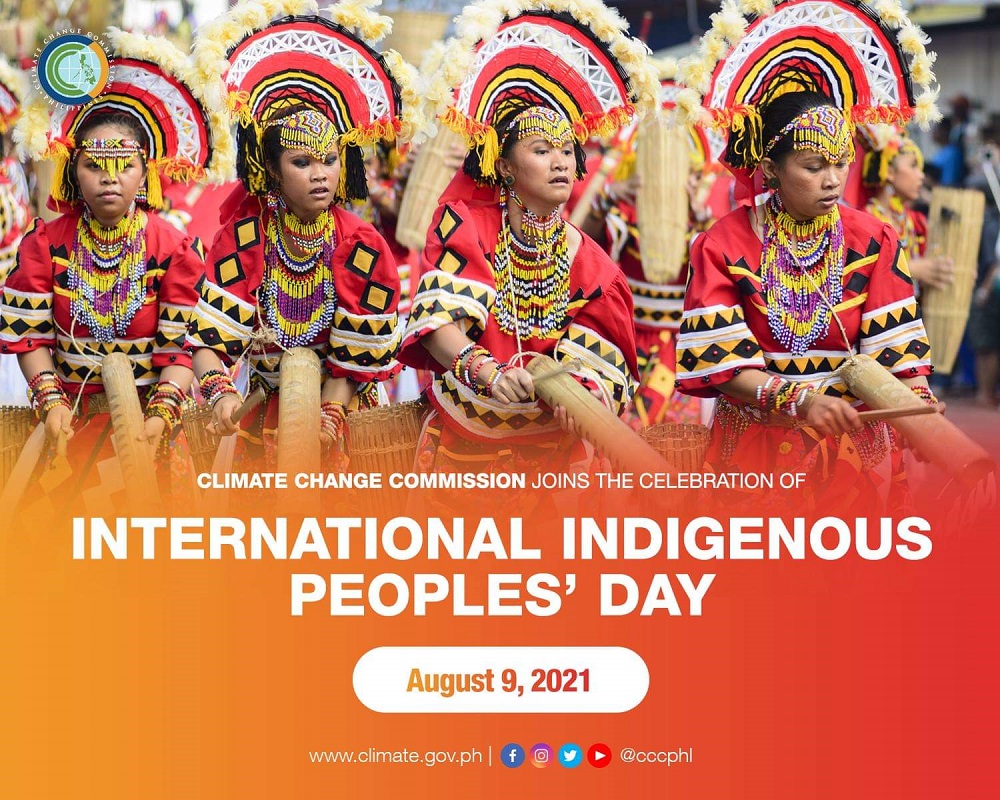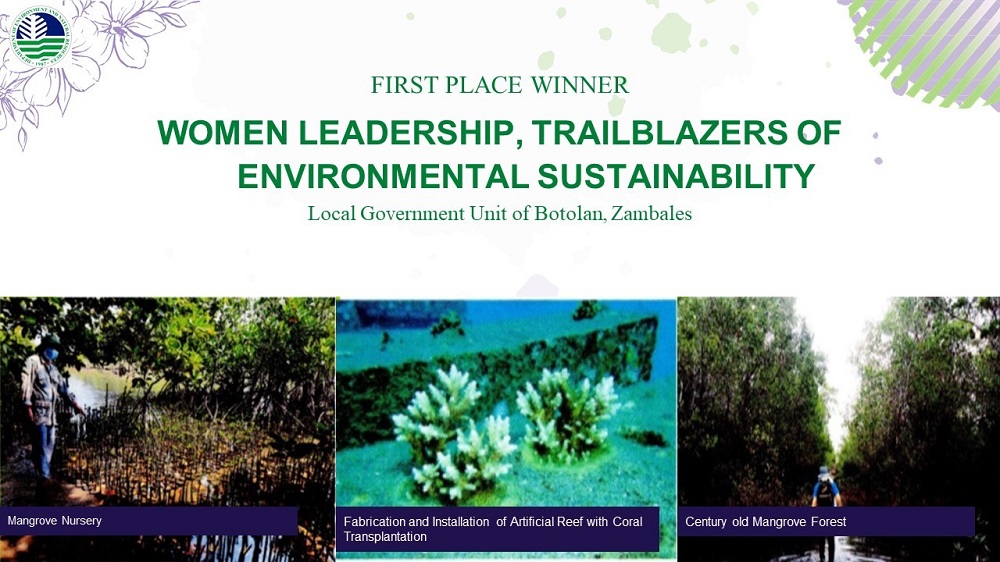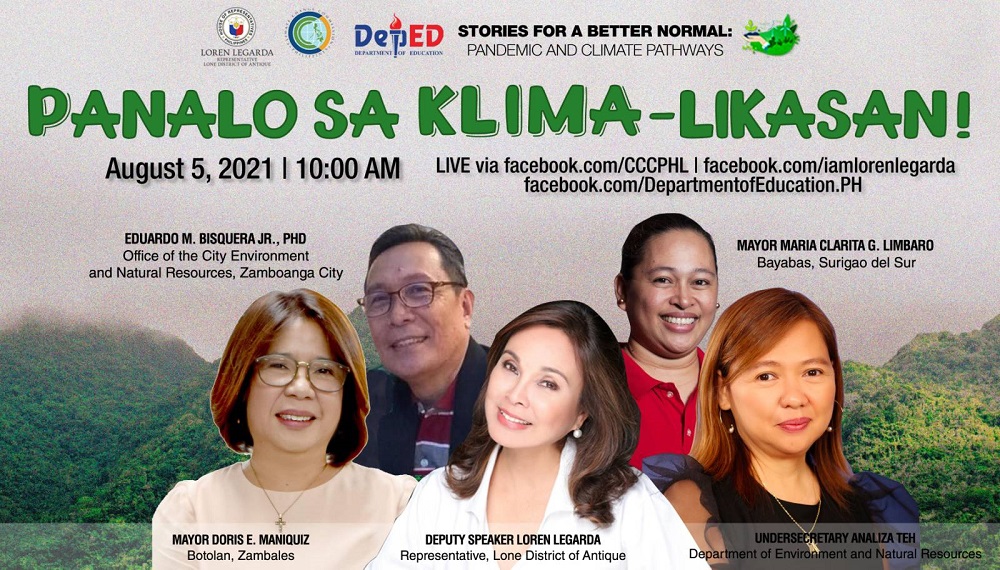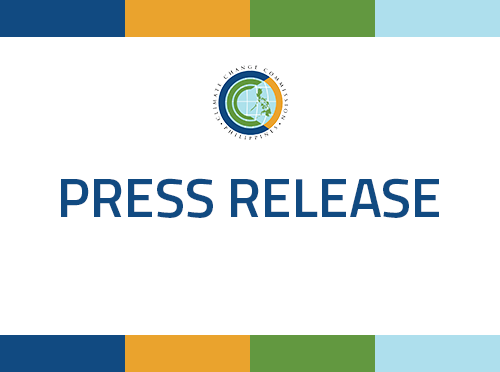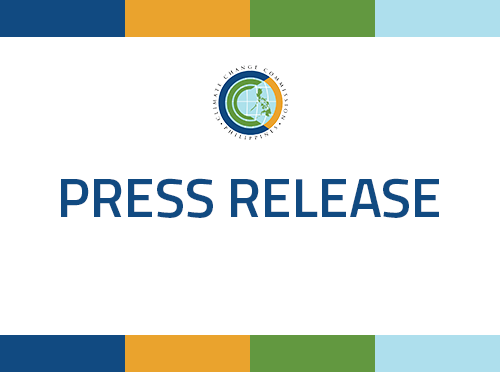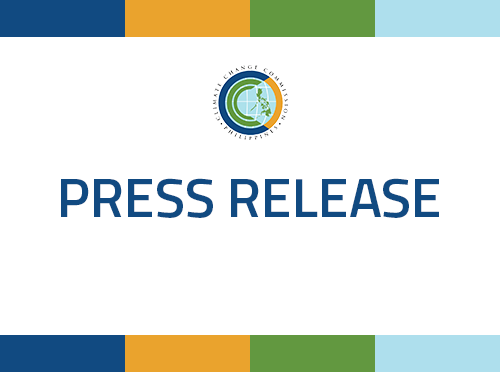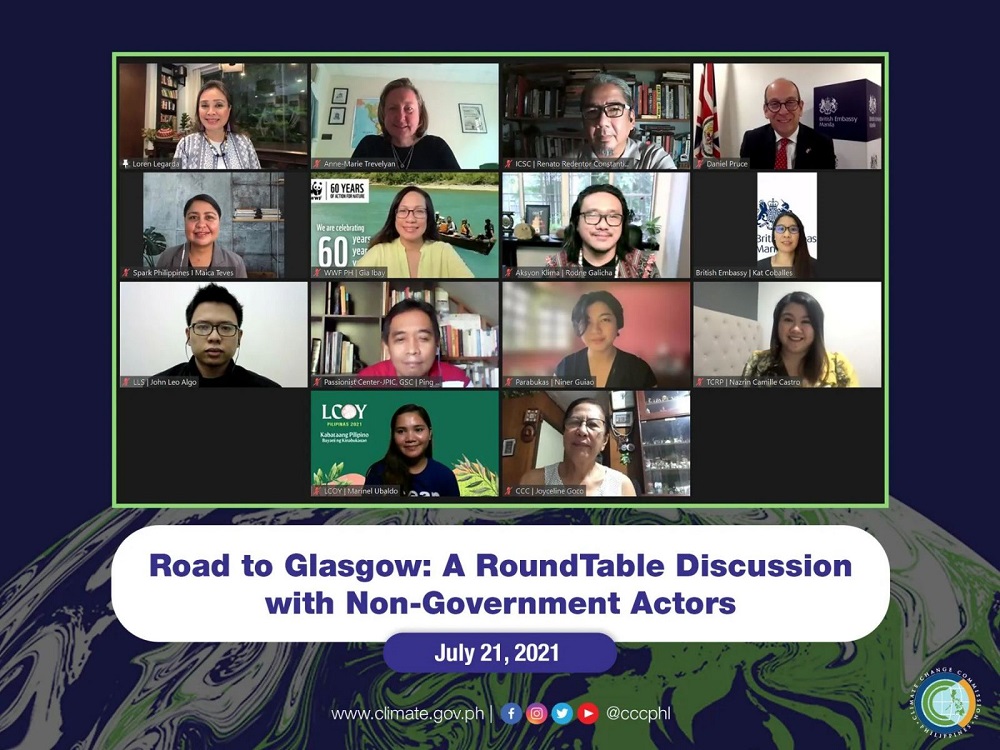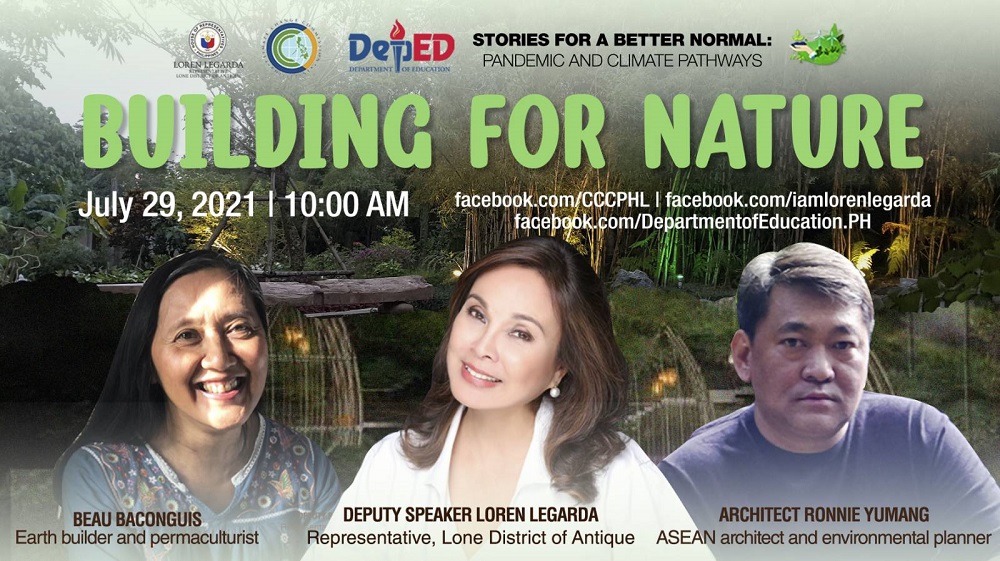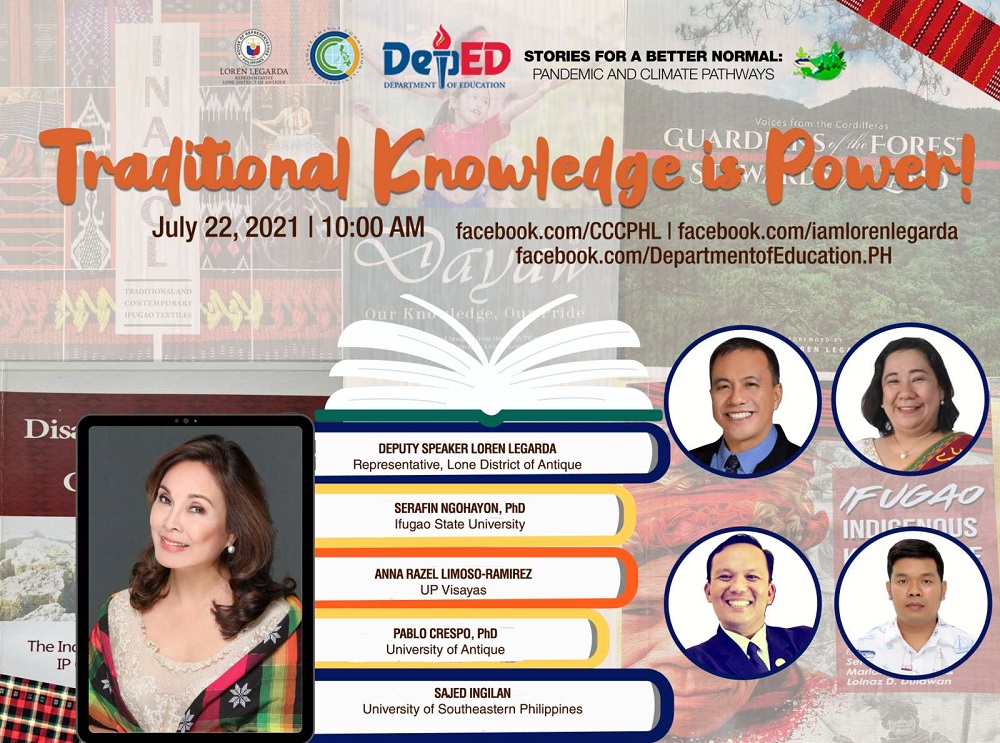MANILA, 27 July 2021 — Three months before the crucial 26th United Nations Climate Change Conference (COP26), the British Embassy of Manila and the Office of Deputy Speaker Legarda convened a virtual roundtable discussion (RTD) with several civil society organizations (CSOs) in the country.
Co-chaired by Deputy Speaker Loren Legarda and UK Minister of State for Energy, Clean Growth and Climate Change Anne-Marie Trevelyan, with support from British Ambassador to the Philippines Daniel Pruce and the Climate Change Commission, the "Road to Glasgow: A Roundtable Discussion with Non-Government Actors" aimed to solicit the views of CSOs on critical issues on adaptation and resilience in the Philippines that need to be brought forward to COP26.
“This roundtable discussion is necessary for us to be in full gear for COP26, which promises to make the Paris Agreement fully operational. Under the UK Presidency, we hope to have a COP26 that is truly inclusive and ensures accountability, musters political will, and consolidates bold commitments from all nations, especially the industrialized world,” Legarda stressed in her opening message.
"We have seen [an] increasing number of NDCs coming, half of them as ambitious as perhaps they could be and we continue to encourage robust review of that, country by country. One of the key factors we mentioned is that we are driving really hard for coal phase-out, because coal is one of the clearest polluters. There are alternatives as well, therefore we are pushing for that,” said Trevelyan.
The discussion also aimed to increase understanding of climate change adaptation and resilience priorities in the Philippines from CSOs who are actively engaged in the climate space and to gather their insights on the role of non-government actors to help achieve a whole-of-society, inclusive COP26.
The CSOs in the RTD expressed their support in lobbying leaders’ commitment on the four goals of COP26: Mitigation – secure global net-zero and keep 1.5 degrees within reach; Adaptation – urgently adapt to protect communities and natural habitats; Mobilizing finance, and Collaboration – work together to accelerate action.
Statements from the CSOs expressed optimism, a sense of urgency, and the need for accountability and ambition for the COP:
"We hope that we can agree in Glasgow to more ambition-raising mechanisms, not just every five years. If we can create platforms to which the countries can increase their ambitions without having to wait for five years, then it will save a lot in terms of catching up to the lost time because of COVID-19, but also that we can look towards a transformational momentum that goes across beyond our countries and regions to one where the world could actually work together towards economy and investment,” said Red Constantino, Executive Director of the Institute for Climate and Sustainable Cities.
"We cannot frame climate change as an intergenerational responsibility if we exclude the younger generations and limit these discussions to those who have allowed our planet to be in this state of the climate crisis we are in. We hope that COP26 will genuinely provide meaningful space and a platform for our young climate leaders to communicate their thoughts, exchange ideas, and seek support for their initiatives,” said Nazrin Castro, Country Manager of The Climate Reality Project-Philippines.
"Being with Living Laudato Si’ Philippines, there should be the recognition of the role of faith communities, both moral and active forces to ensure higher ambitions. It would be a strategic approach of COP26 Presidency, different from any other COPs, especially the presence of Pope Francis, hopefully, in Glasgow, and the participation of many faith-based organizations, religions, in global pilgrimages leading to Scotland,” said Rodne Galicha, National Convenor of Aksyon Klima Pilipinas. He also sought measures to ensure prioritization of climate finance in the COP—financing in the form of grants, not loans, which may be negotiated bilaterally.
“We know that the Paris Agreement is intended to be a durable and long-term agreement and it should have room for innovation and further elaboration on the strategies and approaches,” said Gia Ibay, Head of the Climate Change and Energy Programme of the World Wide Fund for Nature – Philippines. She called for an “all hands on deck, whole-of-society approach” in addressing the climate crisis, particularly in drawing the path for a green COVID-19 recovery where the potential of nature-based solutions are maximized.
“It is imperative that we make sure that women's global voices, interests, and perspectives are fairly represented at the leadership of COP26. Climate change is a huge threat, but women play a fundamental role in our fight against it. Any problems we face as a result will be easier to solve if both men and women are equally included in solving them,” said Atty. Maica Teves, Executive Director of SPARK! Philippines.
"One legacy of the UK COP Presidency is to operationalize nature-based solutions, distinguish it from adaptation, and link it up with clear, ambitious, with measurable finance,” said Atty. Ping Peria, adviser to the Philippines’ climate change adaptation, loss and damage, and agriculture themes at the UN climate change negotiations.
The COP26, happening from October 31 to November 12 of this year in Glasgow, Scotland under the presidency of the United Kingdom, in partnership with Italy, is a momentous time for governments to report and strengthen their commitments toward the fulfillment of the six-year-old Paris Agreement on Climate Change.
In light of the COVID-19 pandemic, the conference was re-scheduled from its initial schedule in November 2020 to ensure that all parties can focus on containing the spread of the virus.
The Philippines is further advancing the implementation of Paris Agreement targets as it officially submitted its ambitious Nationally Determined Contributions in April 2021, bannering a projected 75% greenhouse gas emissions reduction and avoidance, of which 2.71% is unconditional and 72.29% is conditional, representing the country's ambition for GHG mitigation for the period 2020 to 2030 for the sectors of agriculture, wastes, industry, transport, and energy.
The Philippines is also the first in the region to set a moratorium on new coal-fired power plants and to expand the use of renewables for both environmental and reliability purposes. This could reduce emissions by 32-35% in 2030 in comparison to current policy projections.
In closing, Legarda stressed that: "We are all in this together. We must all campaign for nature, for 1.5C, for loss and damage, for climate adaptation, for mobilizing finance, and to make sure that COP26 will make history to be a successful COP where we were able to operationalize the four goals we set at the beginning with the UK COP Presidency."
See the latest updates on the upcoming COP26 by visiting its official website at https://ukcop26.org/.
July 26, 2021 Monday

